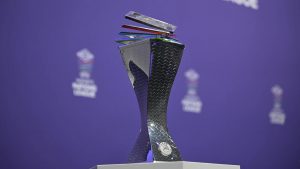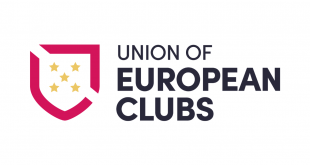 The new UEFA Women’s Nations League is proving a hit with competing teams, according to the four coaches in charge of the competition’s first semifinalists.
The new UEFA Women’s Nations League is proving a hit with competing teams, according to the four coaches in charge of the competition’s first semifinalists.
The inaugural league stage kicked off in September, with League A winners France, Germany, Netherlands and Spain making up the final four. Spain play the Netherlands and France meet Germany in the semifinals on February 23, with the final and third-place match five days later.
As well as deciding which two European teams join hosts France at the 2024 Olympic women’s football tournament, the Nations League rankings at the end of the league stage also establish teams’ starting league positions in European Qualifiers for UEFA Women’s EURO 2025 in Switzerland, with the possibility of promotion and relegation ensuring every match matters for all teams.
The coaches of the four semifinalists have each had their say on the Nations League and interconnected competition system.
Hervé Renard, France coach, said, “I think it’s a great initiative for women’s football. It offers the chance to have some top-level games, and when we have such high quality like in these semifinals, whoever comes out on top will be thoroughly well-deserved winners, so it really showcases the best of women’s football.”
“First of all, winning would be amazing, when we know that French women’s football team has never won a [senior] competition, and being the first to win the Nations League would be even better.”
Horst Hrubesch, Germany interim coach, said, “I think it’s going very well. The way it’s set up now is quite good.”
“We’ve gone through in the Nations League; we can still qualify for the Olympics. No matter what you do, the goal is always the same. If you are in a semifinal and can get to the final, then you just have to try to put everything into it and play positively to win it.”
Andries Jonker, Netherlands coach, said, “I see huge advantages in playing important matches, big matches that can make a difference. It’s good for women’s football in general, it’s good for football in the countries involved, good for the development of the players.”
“What does mean a lot to us is qualifying for the Olympic Games. I think it’s a good thing for women’s football that this affects qualification. One other thing is that it gives you a favourable seeding for Women’s EURO [qualifying], so it’s important that you perform well in the Nations League.”
Montserrat Tomé, Spain coach, said, “For us, it’s a very attractive competition which gives us a fresh sense of excitement because it’s a new experience for the players. From the very beginning, with the group we were drawn into, the demands were very high against top rivals. I rate the competition very positively because our players can keep developing at the best possible level.”
Kessler pleased with early impact
UEFA managing director for women’s football, Nadine Kessler, has also been pleased with the impact of the new competition.
Speaking at the finals draw, she said: “Over the past three months, the UEFA Women’s Nations League has given us everything we asked for and more. It has already made its mark in demonstrating the very best women’s national team football has to offer and proving that a whole continent can benefit from it.”
“We’ve had great matches, surprise results and drama everywhere you looked and right until the very last minute of Matchday 6. The average margin of victory has been cut in half, the number of matches decided by three or more goals cut by 65% and the number of five-goal victories cut by 85%, exactly what we set out to achieve.”
“Our game is more visible than ever before and the turnstiles, logically, are busier than ever before; average stadium attendance has more than doubled in comparison to the previous qualifying campaign and total attendance in this phase stands at more than 680,000.”
There is still plenty more to come. With February’s finals, as well as promotion and relegation matches on the horizon before the start of the European Qualifiers phase, there is lots to look forward to in 2024.
 Arunava about Football A look at football & the world through my eyes!
Arunava about Football A look at football & the world through my eyes!



